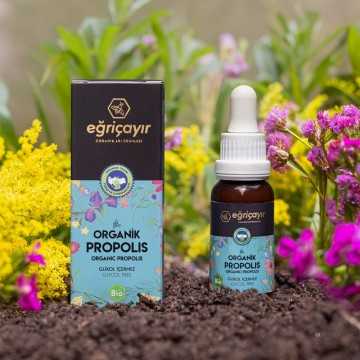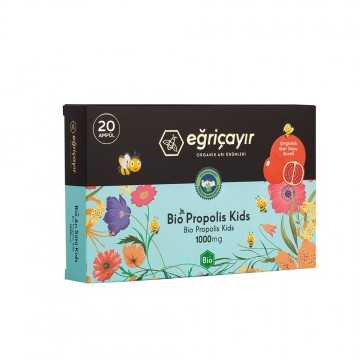EĞRİÇAYIR ORGANIC PROPOLIS DROP WATER BASE
Propolis
What is Propolis? Propolis is a powerful natural product produced by bees from plant resins. It is collected by bees from the buds and leaves of trees and plants such as pine, oak, eucalyptus, poplar, chestnut. The collected propolis turns into a rich source with beeswax and enzyme components secreted by bees. What is the Structure of Propolis? Propolis can be yellow, brown or green in color depending on the region where it is collected and the variety of plant flora. Structurally, it has a sticky and resinous form. It is known as bee glue because of its gum-like properties. Propolis is hard and brittle below 10 degrees, and in a waxy resinous state at 15-25 degrees. It turns into a structure that is softer and sticky at 30-40 degrees. It transforms into a structure known as liquid propolis at temperatures above 40 degrees Celsius. What's in Propolis? Propolis, like other bee products, has valuable contents in terms of vitamin value, protein and enzyme components. Basically, we can summarize how propolis is formed as follows. Worker bees obtain propolis by miraculously mixing beeswax and pollen in the required proportions with the enzymes released from their glands. It naturally contains tree resin, essential oils, waxes and bioflavonoids. Bioflavonoids are one of the most important components of propolis. The nutritional value of propolis consists of polyphenols, phenolic acids, terpenes, steroids, antioxidants, amino acids, vitamins B1, B2, C and E. Bees need propolis, which has valuable ingredients both for the existence of their own colonies and for honey production.
There are 2 products.
EĞRİÇAYIR ORGANIC PROPOLIS AMPOULE KIDS 1000MG 20 BULBS


